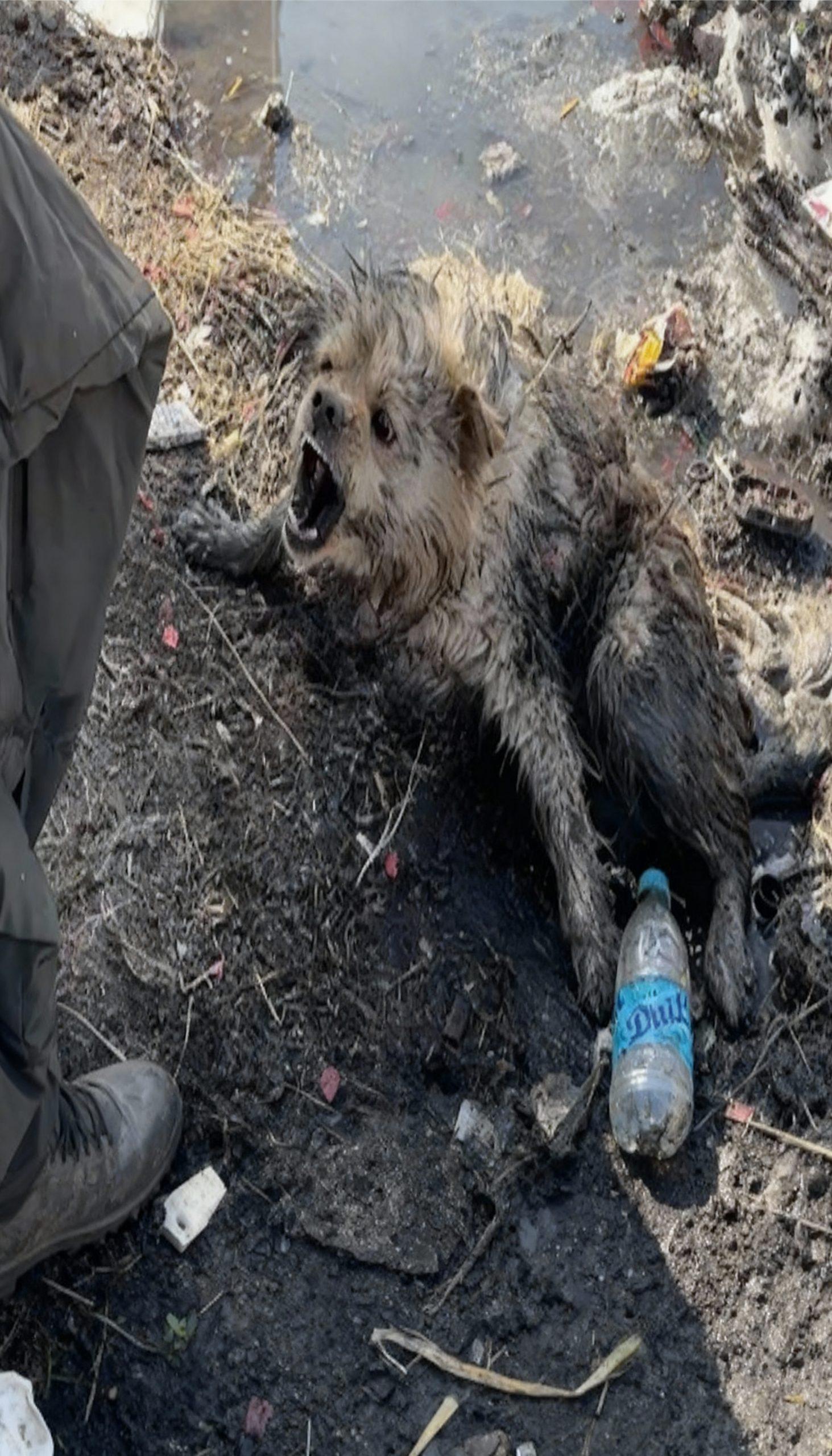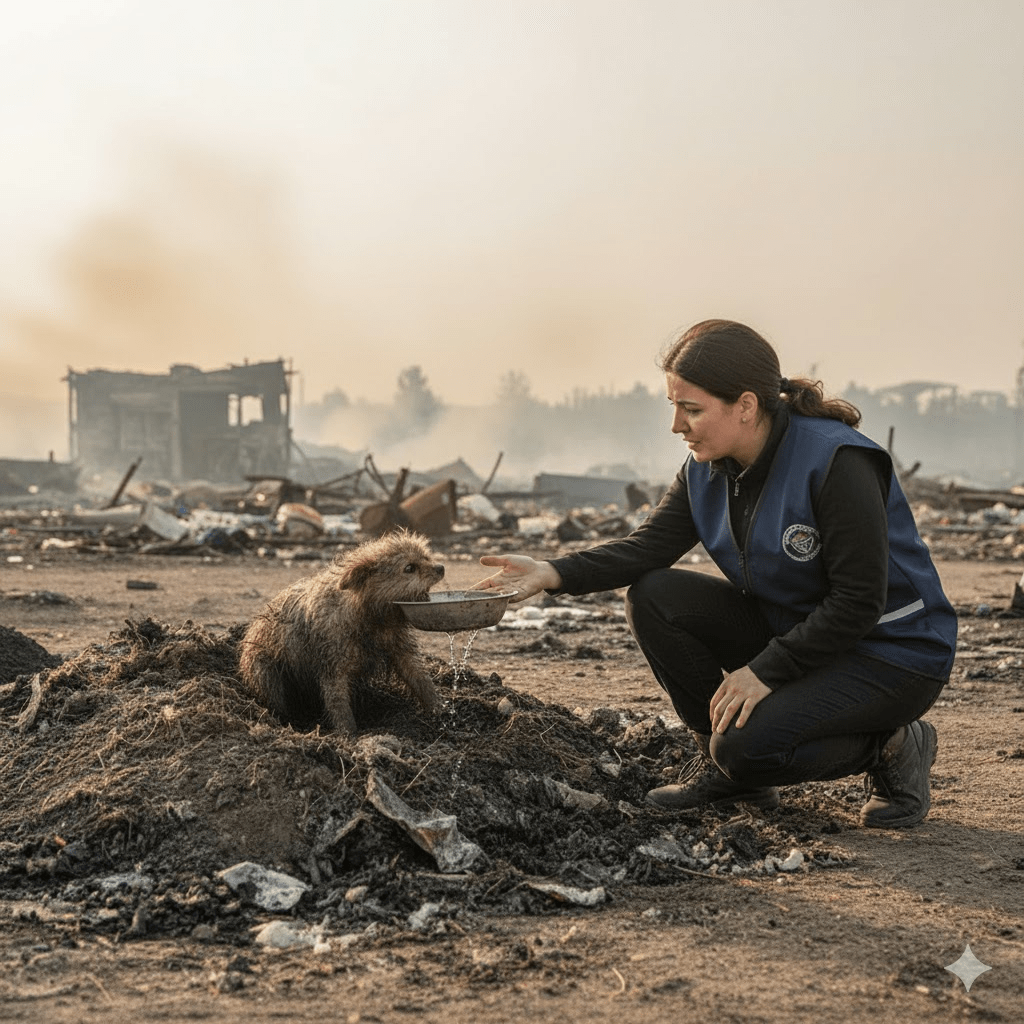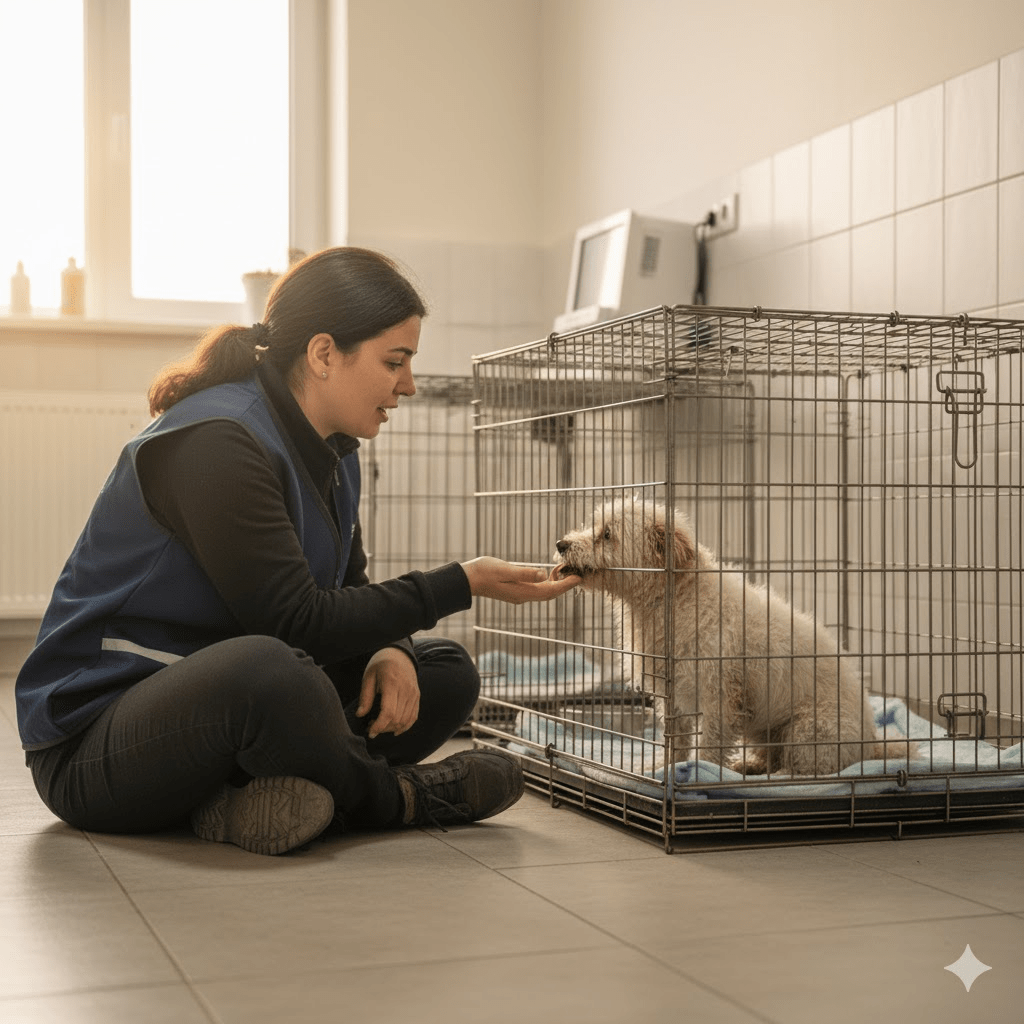The scene was one of utter desolation. Amidst the charred remains and acrid smoke of what appeared to be a recent disaster, a small, matted creature lay, barely distinguishable from the debris. Its fur, once perhaps a vibrant shade, was now caked with mud and grime, its eyes wide with a mixture of fear and defiance. A chilling whimper escaped its parched throat, a sound that spoke volumes of hardship endured and hope nearly extinguished. This was not just an animal; it was a testament to resilience, a tiny flicker of life amidst widespread ruin. The discovery, made by a lone volunteer surveying the aftermath, was a stark reminder of the often-unseen victims of tragedy – the voiceless, the vulnerable, the forgotten. The initial assessment was grim; the dog was emaciated, likely injured, and deeply traumatized. Its chances of survival, in that moment, seemed impossibly slim.

Despite the initial fear, a glimmer of connection was made. The volunteer, an experienced rescuer named Elena, approached cautiously, speaking in soft, reassuring tones. She offered a small piece of food and a bottle of water, hoping to coax the terrified animal out of its defensive crouch. The dog, whom they later named “Phoenix” for its emergence from the ashes, initially snarled, its instincts screaming danger. Yet, a flicker of curiosity, perhaps even a desperate longing for kindness, seemed to override its fear. Slowly, painstakingly, Phoenix took a tentative sip of water, a small victory in a battle for survival.

Transporting Phoenix to the local rescue center was another challenge. The dog was still wary, lashing out when attempts were made to touch it. It took several hours and the patient efforts of two more volunteers to gently guide Phoenix into a carrier, a journey filled with uncertainty and the constant fear of further traumatizing the already fragile animal. Once at the center, the extent of Phoenix’s injuries became clear; severe dehydration, malnourishment, and several untreated wounds suggested a long period of abandonment and struggle.
Phoenix’s recovery was a slow, arduous process, marked by both setbacks and heartwarming progress. Initially, the dog refused human touch, cowering in its kennel and growling at anyone who approached. The veterinarians and volunteers implemented a rigorous but gentle care plan, focusing on small, consistent interactions. Elena, in particular, spent hours simply sitting by Phoenix’s kennel, speaking softly, never forcing contact. It was during one of these quiet moments, weeks into its recovery, that Phoenix finally made a breakthrough – a tentative lick of Elena’s outstretched hand, a small but profound gesture of trust.







